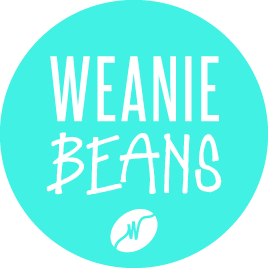Environmental Comitments
We are taking the following steps to reduce our environmental impact. If you have any suggestions or questions please contact us.
Offsetting
We plant a tree for every 10 coffee subscriptions that are ordered.
Recyclable Packaging
Coffee bags - Domestic Recycling
We have recently transition to all fully recyclable coffee bags. Standard paper or plastic coffee bags are foil lined to keep coffee fresh. This means that normal recycling processes can't separate the paper, glue and foil. Many other bags claim to be compostable, but most are only compostable at industrial composting services, which hardly anyone actually does.
The bags that we have sourced are fitted with a one way valve, allowing air out, but not into the bag, which keeps your coffee fresher for longer. The bag and valve are made from LDPE 4 which can be recycled in most normal domestic recycling bins. If your council doesn't recycle LDPE 4, you can drop them in to any plastic bag recycling box.
Tissue Paper, Info Cards & Stickers - Domestic Recycling
We work with printers who are FSC accredited, print with soy based inks and plant trees to offset paper consumption. All our printed material can be recycled.
Mailer Bags - Domestic Recycling
The mailer bags we use are specially constructed from double walled paper which means that they can withstand a whole day left out on your doorstep if need be, but hopefully won't be! They can be put in your recycling bin.
Low Energy
Roasting coffee sounds like it might have a big environmental impact, but compared to farming and the cows' milk you might use, it isn't the biggest factor (See infographic below). However, our coffee is only ever roasted at full capacity so as not to unnecessarily use more energy than needed.
Zero Waste
Both our warehouse and café are striving to be zero waste. Recyclable materials are used for everything we consume, produce and sell. We reuse packaging and packing materials, and when bubble wrap is used, it's always compostable plastic or recyclable paper based.
Our food waste is collected and used to create biofuel.
We always use recyclable take away materials at events or markets we attend, and take our waste back for recycling or composting.
Coffee At Home
Whilst we all enjoy drinking coffee out and about we actively try to promote drinking coffee at home. It's not only cheaper for the consumer this way, but has way less environmental impact. A recent study found that up to 20% of a cup of coffee's carbon footprint is a result of buying at the café.
Dear Dairy
Whether you like milk in your coffee or not you cannot ignore research that suggests this breakdown of the carbon footprint of a cup of coffee.

This is why we encourage people to switch to an alternative to cows milk. Oat milk is our favourite. It does take a little bit of getting used to (about a week we reckon), but as you can see, it dramatically reduces the environmental impact. If combined with drinking at home rather than at a café we think the impact might look something like this:

